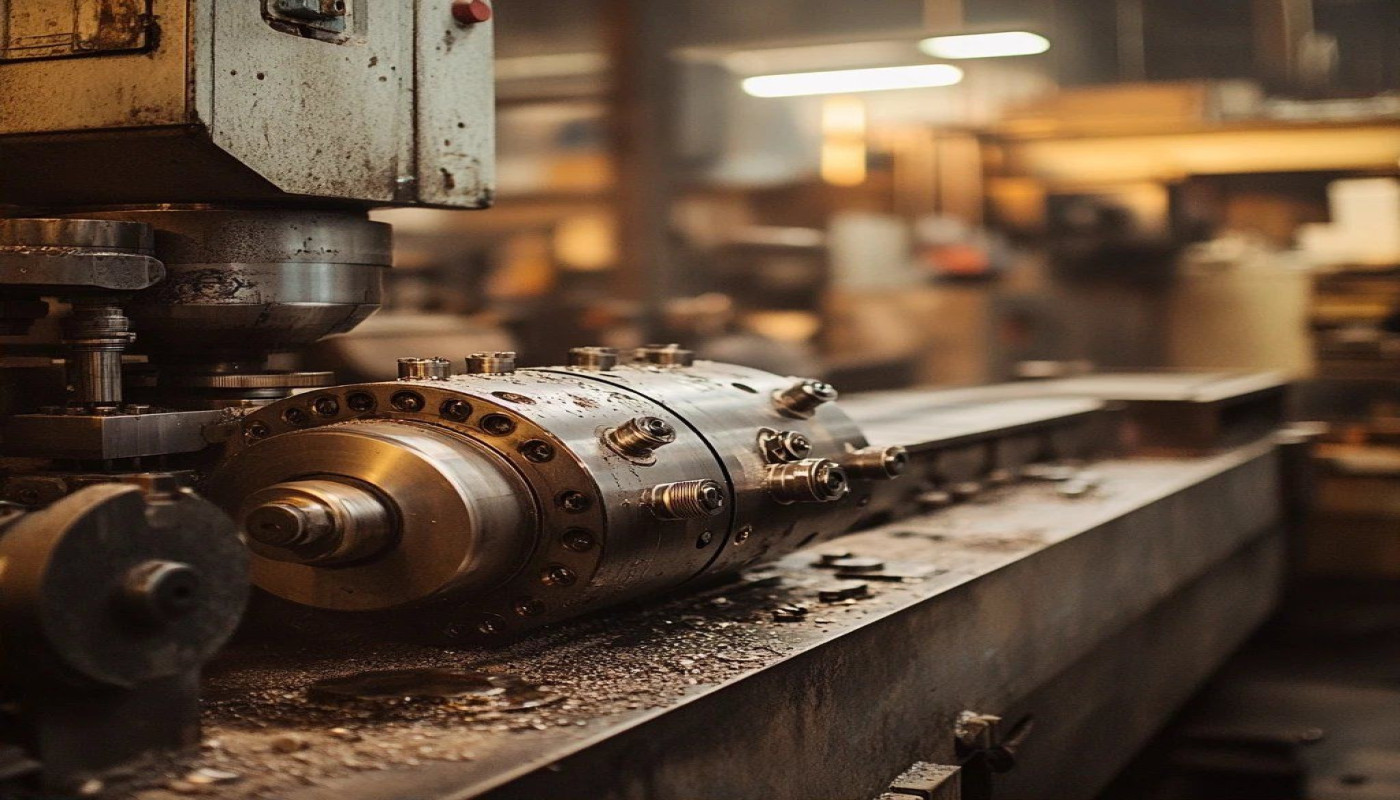Table of contents
Upgrading aging CNC lathes presents a compelling dilemma for manufacturers and machine shop owners: should these machines be overhauled or replaced altogether? With the rapid advancement of automation technology, the decision to revamp old CNC lathes can significantly impact productivity and profitability. Explore the complexities, benefits, and potential pitfalls of CNC lathe modernization to make an informed decision for your shop’s future.
Assessing Machine Condition
CNC lathe assessment begins with a detailed machine inspection, focusing on detecting signs of machinery wear, evaluating structural integrity, and determining compatibility with modern retrofit components. The process typically involves checking for cracks, corrosion, worn slides, and outdated wiring, as well as using precision instruments to measure alignment and spindle runout. An essential aspect of retrofit evaluation is identifying backlash, which refers to the slight movement or play between mechanical components, such as gears or lead screws, when the direction of movement changes. Excessive backlash can cause inaccuracies in part production, directly affecting overall CNC performance. Consulting a certified machinery expert for a comprehensive inspection provides insight into the equipment’s longevity and flags any hidden issues that could lead to significant repair costs later. This initial assessment establishes a baseline for determining whether investing in a retrofit will result in meaningful operational benefits or if replacing the machine offers better long-term value.
Key Upgrades To Consider
When considering CNC upgrade options for aging lathes, several impactful modifications can dramatically transform performance and extend machine life. One of the most beneficial upgrades is a control system retrofit, which involves replacing outdated CNC controllers with modern, user-friendly interfaces that support advanced programming and automation features. This step can significantly increase operational efficiency, reduce programming errors, and improve compatibility with current manufacturing standards. Another effective enhancement is servo drive replacement; in this context, a servo drive refers to the electronic device that controls the movement and positioning of mechanical components by precisely regulating the electric motors responsible for axis motion. Upgrading these drives leads to smoother movements, higher precision, and reduced maintenance downtime. Software modernization often accompanies hardware improvements, providing enhanced diagnostic tools, easier integration with CAD/CAM systems, and stronger cybersecurity measures. Digital readout installation is yet another upgrade, offering clear, real-time feedback on tool positions and part dimensions, which helps operators maintain tighter tolerances and reduce scrap rates. Collectively, these CNC upgrade options not only restore an old lathe’s productivity but also align its capabilities with newer machines, offering a cost-effective alternative to full replacement.
Cost Versus Value Analysis
When evaluating the decision to revamp aging CNC lathes, a comprehensive CNC investment analysis is necessary to compare the CNC retrofit costs against the expense of purchasing completely new equipment. Retrofitting typically involves lower upfront costs and can significantly reduce the equipment upgrade budget, especially if the foundational machine structure remains solid. One aspect often overlooked is the potential downtime, as upgrading existing lathes may require less lead time than acquiring and installing new machines, minimizing production interruptions. Calculating machine ROI, or return on investment, is pivotal in this process; this metric represents the ratio of net gains from the investment to its total cost, enabling precise assessment of whether the long-term operational savings and extended machine lifespan justify the initial expenditure. Consideration of both tangible savings, such as reduced maintenance and increased efficiency, and intangible benefits, like enhanced process reliability, shapes the overall value proposition for revamping versus replacement.
Productivity and performance gains
Revamping old CNC lathes delivers considerable CNC productivity gains by bringing outdated machines up to current technological standards. Performance improvement is typically observed through enhanced precision machining, where upgraded control systems and feedback devices minimize errors and improve consistency across production runs. Reduced cycle times are a key outcome of such upgrades; cycle time refers to the total time needed to complete one full machining operation, from setup to final part removal. By optimizing drive systems, updating software, and improving tool-handling capabilities, revamped lathes achieve faster, more efficient cycles while maintaining accuracy. Machine reliability is also significantly enhanced, as newer electronic components and mechanical refurbishments reduce unplanned downtime, lessen maintenance demands, and boost overall shop floor productivity. These gains become tangible in real-world settings, where businesses experience fewer interruptions, higher part throughput, and the ability to meet tighter tolerances. A company like SAMO exemplifies how modernization services can drive such substantial improvements for manufacturing operations seeking a competitive edge.
Long-Term Maintenance Considerations
Modernizing older CNC lathes significantly affects CNC maintenance planning and the practical aspects of serviceability. By integrating up-to-date control systems and components, retrofitted machine support often becomes easier, as newer hardware and software are typically compatible with current diagnostic tools and service protocols. This can streamline routine upkeep, making preventative maintenance—proactive measures taken to prevent equipment failure—a more reliable process. On the other hand, mixing old mechanical components with modern electronics sometimes complicates maintenance if service technicians encounter unfamiliar hybrid systems. Parts availability is a significant factor; sourcing replacement parts for legacy machines becomes less challenging when standardized or widely used new components are installed during upgrades. This transition can reduce downtime and maintenance costs over the machine’s extended life, as the risk of obsolete part shortages drops. Effective CNC maintenance planning after modernization should focus on regular inspections, timely lubrication, and software updates, ensuring that both legacy and new components work harmoniously and efficiently for years to come.
Similar articles

How Does Unified VAT Handling Boost E-commerce In The EU?

Essential Tips For Managing Multiple Store Cards Efficiently

Exploring The Benefits Of Free Zones For New Entrepreneurs

Exploring The Strategic Benefits Of Establishing A Forex Business In The Caribbean

the rise of eco-conscious consumers and the shift in business strategies

Unlock investment opportunities with prime commercial properties in Sint Maarten

Assessing The Societal Influence Of Widespread AI Chatbot Adoption

